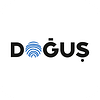BCS müfredatını esas alan bu eğitim, sistem geliştirmenin temel becerileriyle ilgilidir. Sistem geliştirmenin tüm unsurlarının temelini oluşturduğuna inanıldığından sistem yaşam döngüsüne, sistem araştırmasına, modellemeye ve kalite güvenceye odaklanmaktadır. Eğitim ayrıca katılımcılara sistem geliştirme çalışmalarının nasıl düzenleneceğini de tanıtmaktadır. BCS müfredatı, farklı genel yaşam döngüsü türleri, yöntemleri ve yaklaşımlarını birbirinden ayırdığı için özel bir yaklaşıma daha ayrıntılı olarak eğilmeyi gerektirir.
İnsanlar gerek işletme gerekse de teknik bir arka plandan uygulama sistemleri analizine geçtiklerinden uygulama sistemleri geliştirme sürecini ve sistem analistlerinin, çözüm mimarlarının da tasarımcıların rollerini daha temel bir şekilde anlamaları gerekmektedir. Bu eğitim de bu temel noktaları sunmakta ve başarılı sistem geliştirme projelerinin tümünde önemli bir rol oynadıklarından sistem araştırması ve kalite güvence tekniklerine odaklanmaktadır.
Ayrıca sistem geliştirme çalışmalarının nasıl düzenlenebileceğini de incelemekte ve genel yaşam döngüsü türleri, yöntemleri ve yaklaşımları arasındaki ayrımı ortaya koymaktadır. Eğitimin sonunda katılımcılar, Sistem Geliştirmenin Temel Unsurları alanında BCS Sertifikası elde edebilmek için bir sınava girebileceklerdir.
Bu eğitim, Çözüm Geliştirme alanında BCS Diploması almaya yönelik QA programının bir parçası olarak alınabilir. Bu eğitim, kapsadığı analiz becerilerinin uygulamalı olarak da ele alındığı, üç günlük yoğun bir eğitimdir. Katılımcılar hem alıştırmalara hem de örnek vaka görevlerine katılmaktadırlar. BCS sınavına katılan katılımcıların ise hem eğitim konularını hem de örnek sınav sorularını gözden geçirmek için her akşam yaklaşık 60-90 dakikalarını ayırmaları gerekmektedir.
BCS Sistem Geliştirme Diplomasına giden QA programını tamamlamak isteyen katılımcıların almaları önerilen eğitimlerin sıralaması ise şu şekildedir:
1. Sistem Geliştirmenin Temel Unsurları,
2. Sistem Modelleme Teknikleri (UML) veya Sistem Modelleme Teknikleri (Yapılandırılmış),
3. Sistem Tasarım Teknikleri,
4. Yazılım Testi Temeli.
Sınavınızın ardından BCS’den, tarafınıza sınavınız için kaydolmanızın istendiği bir e-posta gönderilecektir. Kaydınızı olduktan ve sınav sonuçlarının da açıklanmasının ardından hesabınıza giriş yapabilir ve sonuçlarınızı görebilirsiniz.
Yöntem Tercihleri
BCS müfredatı için eğitim sağlayıcıların, bahsedilen genel yaklaşımlardan daha ayrıntılı bir şekilde açıklanması ve ele alınması gereken belirli bir geliştirme yaklaşımı seçmeleri gerekir. QA, tüm yaşam döngüsü boyunca geliştirme yaklaşımı olarak Dinamik Sistem Geliştirme Yöntemi’ni (DSDM) ve uygulama yazılımı geliştirme yaklaşımı olarak da Scrum’ı seçmiştir. Bu yaklaşımların her ikisi de sektörde popüler tercihler olup genelde birlikte kullanılırlar. Ayrıca modelleme işi ve yazılım spesifikasyonları için Yekpare Modelleme Dili (UML) de kullanılmaktadır.
























